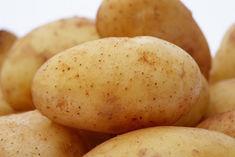
Growers in the Irish Republic claim to have forced Tesco into a major retreat on potato imports, following last week’s confrontation with company bosses.
A day after protesting growers stormed a Tesco managers’ meeting in Ashbourne, County Meath, which was being attended by chief executive Sir Terry Leahy, company representatives sat down with a team from the Irish Farmers’ Association (IFA) to discuss members’ concerns over imports. Under the terms of a deal agreed by the retailer, Irish-grown potatoes are to be prominently displayed in all its stores, with imports of the Desiree variety phased out.
Initially, Tesco had claimed that the Desiree imports at the centre of the conflict had come from Northern Ireland. The protesting growers disputed this, maintaining they had been brought in from England and Scotland and packed in Northern Ireland, using packaging that, whether deliberately or not, was very similar to that used for the Republic’s Rooster variety.
“These imports have been all over the Tesco stores and housewives have been buying them in good faith, believing they are Irish,” complained one grower. “We had packs of them with us when we protested last week. We wanted to hammer home the point that there is no need for imports when there are plenty of good-quality Irish-grown potatoes available.”
Another of the protesting growers, Thomas Carpenter of Kells, County Meath, said Tesco claimed to have reduced prices in its stores along the Irish border to protect jobs in the Republic by deterring shoppers from going north. “But how can Irish jobs be saved by buying imports?” he asked. “It may increase Tesco’s profits, but it won’t protect the jobs that local growers, packers and distributors provide.”
In the aftermath of the agreed deal, Tesco has been advertising extensively in the Irish national newspapers urging consumers to buy locally grown varieties, from Roosters and Irish Records to Kerrs Pink and Queens. “Bags of Irish goodness at a great price”, says the message. It also took full-page ads to stress its “commitment to Irish food”, including potatoes.
But while the fight over imports appears to be resolved, the price issue remains to be tackled. “We’re being crucified on prices,” says Paudge Howard, who farms 450 acres of potatoes in Bellewstown, County Meath. “We get just 15 to 20 per cent of what the shopper pays for potatoes at the local supermarket. It will have to be increased - it’s just not sustainable.”
Meanwhile, the Tesco protestors have had to pay a price for their show of militancy. As they forced their way past the company’s security staff at the Marriott Hotel in Ashbourne and into the Tesco meeting, a door was damaged. Eight Garda squad cars arrived in case the trouble escalated, but they were not needed. “We agreed to leave peacefully and to pay for the damaged door,” said one protestor. “We even got a receipt from the hotel staff - it cost us €100 (£89).”



